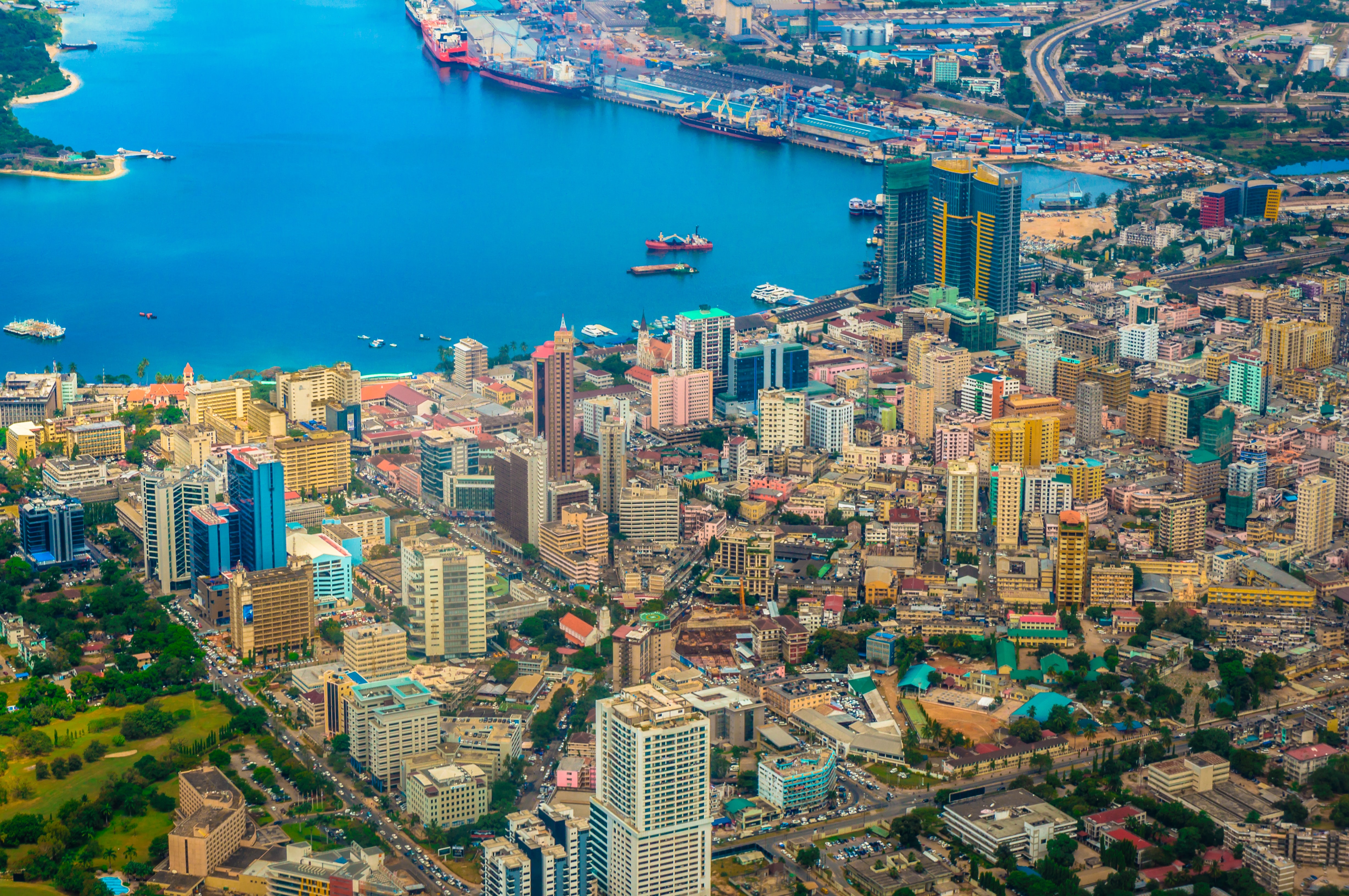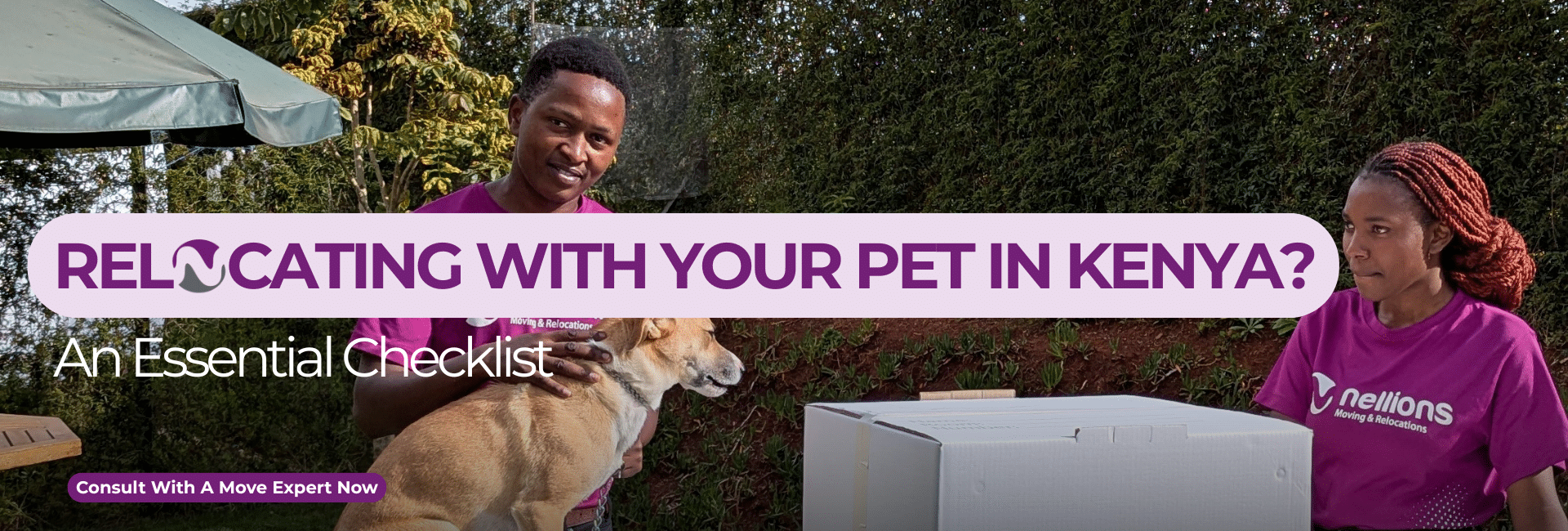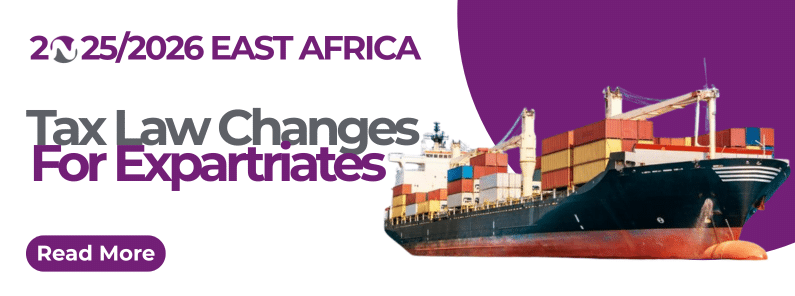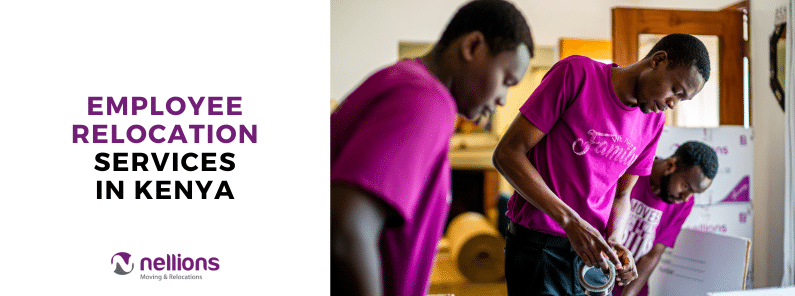As many tourists know, Tanzania is one of the world’s most excellent safari destinations.
So, what’s not to love about the idea of relocating to the largest country in East Africa? The people are warm, friendly, and welcoming—as is the weather.
Tanzania is home to some of the biggest and best parks in Africa, with nearly 30% of the country consisting of National Parks and protected areas. The Serengeti National Park is perhaps Tanzania’s most famous, and it also happens to be a World Heritage Site.
Additionally, Tanzania, whose country code is TZ, is the home to the highest peak in Africa—Mount Kilimanjaro. Kilimanjaro is also the highest free-standing (not part of a mountain range) mountain in the world.
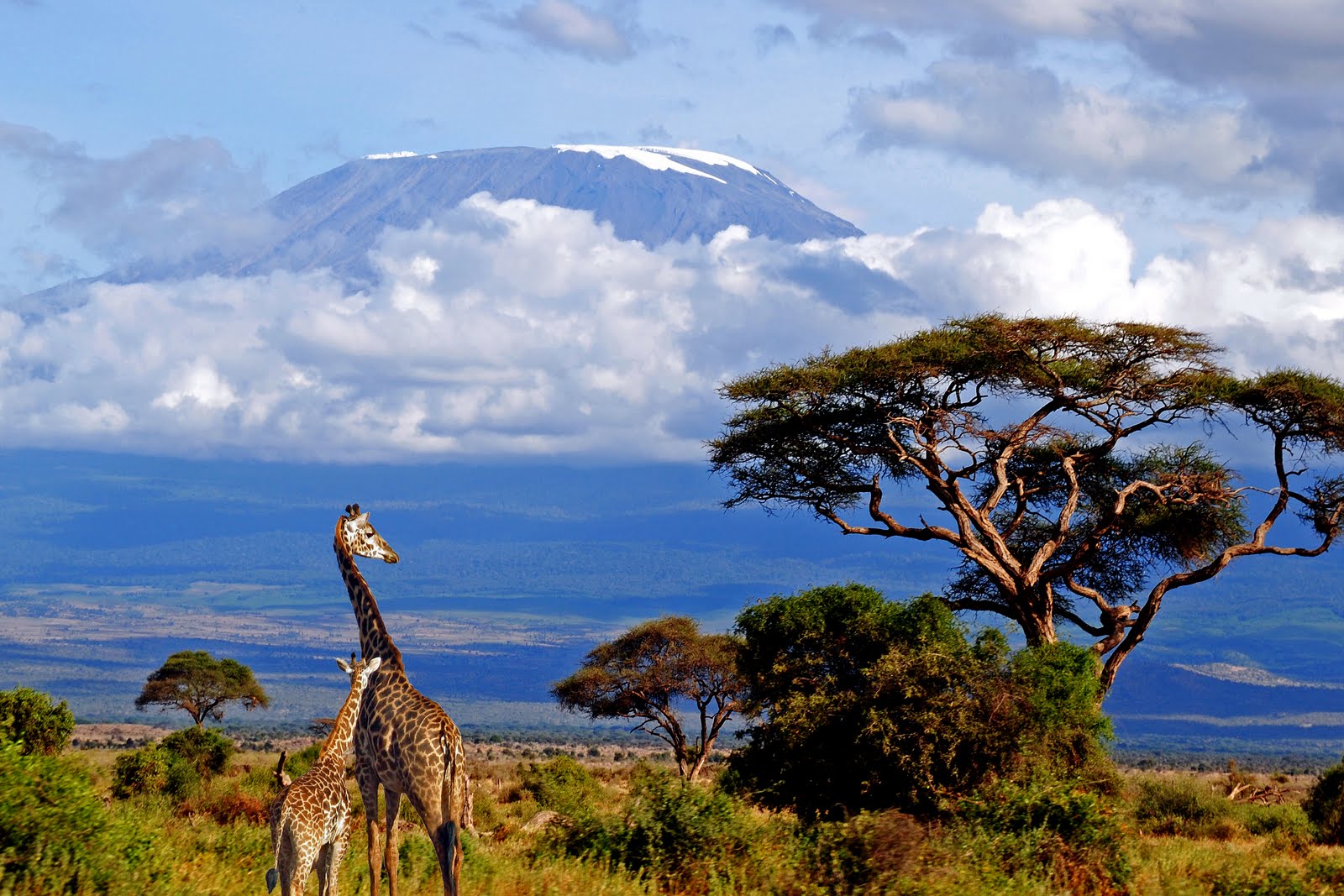
Plus, you can admire Lake Tanganyika—the second largest freshwater lake in the world, which also happens to be the second deepest lake of any kind, in Tanzania.
If you’re considering making the cross-border move to Tanzania, it’s helpful to know that Dodoma is the country’s political (and legislative) capital while Dar es Salaam, which is the largest and richest city in TZ, is its economic (commercial) and administrative capital.
Arusha, on the other hand, is Tanzania’s diplomatic hub. It also happens to be the seat of the East African Community (EAC), which is a regional intergovernmental organization of the Republics of Kenya, Uganda, Burundi, Rwanda, South Sudan, and the United Republic of Tanzania.
Tanzania is a fascinating country that offers adventure, amazing nature and wildlife spots, friendly people and interesting cultural experiences, and a relaxed pace of life.
But just like is the case with relocating to Uganda, there’re still a few important things you must consider and sort out when relocating from Kenya to Tanzania.
1. KRA and TRA Customs Processes Apply
Relocating from Kenya to Tanzania is an international move for which various arrival and departure rules apply. You must, therefore, be prepared to submit to the Kenya Revenue Authority (KRA) and Tanzania Revenue Authority (TRA) customs guidelines.
Doing so will help you avoid inconveniences and nasty surprises as you ferry your household goods and personal effects from one country to the other.
2. Used Household Goods and Personal Effects are Normally Imported Duty-Free
Tanzania allows duty-free status to return citizens or people who are arriving in Tanzania for the first time. However, relocatees must be verified to be bonafide changing residence from a place outside Tanzania to a place in the country.
Additionally, persons granted the duty-free status should neither have been granted this exemption nor resided in Tanzania on anything other than temporary non-resident visits before their relocation.
There’s a time limit for importing your household goods and baggage once you arrive in Tanzania. TRA grants the duty-free exemption to individuals for 90 days from their date of entry into the country or the issuance of a work permit.
Nonetheless, an extension not exceeding 365 days from the arrival of a returning resident may be obtained from the Commissioner-General of TRA.
It’s important to note the other conditions that are tied to the granting of duty-free allowances in Tanzania:
- These allowances are only granted to individuals who have attained 18 years of age
- They cannot be granted when the imported baggage is unaccompanied
- Goods cannot be for trade, sale, or disposal to other persons
Household goods that are new (or which haven’t been owned for more than 6 months) are subject to tax or duties of between 20 and 25% plus VAT of the value assessed by Tanzanian Customs.
It’s instructive to note that personal computers are not considered household goods and are, therefore, subject to tax and duties.
3. First Arrivals and Expats Must Obtain a Residence Permit
It is compulsory for all foreigners with the intention of residing in the United Republic of Tanzania, whether for business, investment, work, or any other acceptable purpose for a period of more than 90 days, to hold a residence/work permit.
These permits are a mandatory requirement during customs clearance. Residence permits are obtained from Tanzania Immigration Department, and they can fall into any of the three types:
- Class A – For investors or self-employed foreigners
- Class B – For expatriates working in companies or private institutions
- Class C – For other classes of foreigners such as missionaries, students, and retirees
Unlike Kenya, Uganda, and Rwanda who have abolished work permit fees for East African residents, Tanzania does charge Kenyan and other EAC residents permit fees.
East African residents pay lesser charges than other foreign nationals, however. A fees schedule for the various resident permits is available on Tanzania’s e-immigration portal.
One may use the e-immigration portal to create an account for a residence permit application, make payments, or check the status of their application.
4. Certain Conditions Are Attached to Expatriate Work Permits
For those employees with special skills who have accepted jobs in Tanzania for which no local citizens could be found, Class B residence and work permits need to be applied for before arriving in Tanzania.
The same applies to missionaries, volunteers, students, researchers, those seeking medical treatment, and others who are interested in Class C permits.
When your employer starts the Class B residence/work permit application process on your behalf, they’ll be required to prove to the Director of Employment at the Ministry of Labor that they haven’t been successful in getting a local Tanzanian for the position you’ll be filling.
Once the Director of Employment forwards his or her recommendation to the Principal Commissioner of Immigration Service, the commissioner will make the final decision on the issuance of your Class B permit.
Your employer will need to provide your:
- Curriculum vitae
- Academic records and qualifications
- Referrals/references from previous employers
- Signed employment contract
- Passport (which must be valid for at least one year)
- Passport pictures
You may endorse your dependents, such as your spouse, parents, and children under 18 years, in your residence permit. Evidence in the form of a marriage certificate for your spouse and birth certificates for your children or parents is, however, required.
It can take several months to get your Class B residence/work permit approved; so, get started as early as possible. If successful, you’ll need to get a re-entry pass for each member of your family so that you may be able to leave and re-enter Tanzania without much hassle.
Whatever you do, don’t ship your household goods before obtaining the permit. Any shipment that enters Tanzania before a residence/work permit has been processed is fully taxable.
It is noteworthy that expatriates must have a work permit that’s valid for at least two years if they’re to import their household goods duty-free into Tanzania.
5. Everyone Must Have a TRA Tax Identification Number (TIN)
Tax Identification Numbers (TINs) are issued by the Tanzanian government for individual or non-individual reasons through the Tanzania Revenue Authority (TRA).
While Tanzanians may apply online for their TIN, residents or foreigners without a National Identification Authority (NIDA) ID must register for TIN by physically visiting the TRA offices closest to them for the capturing of their biometrics (photos and fingerprints).
TINs are mandatory for the purpose of filing PAYE returns.
6. Diplomats Must Fill In PRO 6 Forms
Tanzania allows foreign diplomats to ship their household goods and personal effects duty-free into the country.
But in order to exempt diplomats from paying customs duties and other indirect taxes collected on imports such as VAT and excise duty, PRO 6 forms available from the Ministry of Foreign Affairs must be completed.
The PRO 6 form contains:
- The end-user of the goods
- A description of the goods
- The signs and serial numbers of the goods
- The value of the items
Even though diplomatic shipments are exempt from both inspections and duties, they are not exempt from a wharfage tax of 1.5% of their customs value as declared on the PRO 6 form.
Because it takes between 2 and 3 weeks to obtain the PRO 6, one should hold the shipment at its point of origin if transit time to Tanzania is shorter. Doing so ensures that port storage charges and demurrages don’t apply, especially if the shipment arrives before a PRO 6 form is secured.
To clear their household goods and personal effects, diplomats will require:
- Duly filled PRO 6 form
- Original diplomatic passport
- A dated and signed (by owner) valued inventory list in USD or Euros that’s in English
- Power of Attorney giving a Destination Agent the authority to arrange customs clearance
7. Returning Tanzanian Residents Must Check Their Status with TRA Domestic Taxes Department
Tanzanian citizens or residents who are returning to the country must first check their status with the TRA Domestic Taxes department before they ship their household goods.
Returning citizens who are hoping to qualify for an exemption from duties and taxes on used household goods and personal effects must have lived abroad for at least 1 year without interruption.
Returning Tanzanian citizens who have lived any time, including a period of days, in Tanzania within the last 12 months must pay duties and taxes for their household goods.
Returning residents, on the other hand, must present an original passport that shows the duration of their expatriation abroad.
Additionally, returning Tanzanian residents should sort out any old, unpaid tax arrears, penalties, or issues with the taxman to prevent complications with their shipments at the port or border.
8. All Goods Entering Tanzania Must Get Through Customs Clearance
Household goods have to undergo clearance and Electronic Cargo Tracking Systems (ECTS) by customs at Sameer Park Customs Area in Nairobi before departing Kenya for Tanzania.
ECTS helps customs bodies monitor goods remotely and prevent both theft and the dumping of goods in transit through a given territory. Additionally, it helps expedite clearance at loading and off-loading points as the technology enables quick inspection and cargo clearance.
The cargo must have an accompanying declaration and exit note from Tanzania before it departs Kenya. Obtaining this note can take approximately three days from the time packing is completed.
9. Transport by Road is Preferred, Despite Kenya and Tanzania Having Sea Ports
Since Kenya and Tanzania are neighbouring countries, the recommended mode of shipping your household goods from Kenya to Tanzania is by road. Yes, the two countries do have sea ports. But road transport is by far faster and you get to enjoy a very quick clearance process.
Shipping your household goods over sea is slower, and it adds to your costs because you have to pay port duties and taxes. Additionally, you still have to transport your goods from the port to their final destination.
Opting for road transport, on the other hand, gives you the chance to use professional moving companies who pack your household goods to international standards from the get-go. They also unpack and set up your new house, making your move as seamless and pain-free as possible.
10. A Move to Tanzania Can Be Completed in at Least 5 Days
It is entirely possible to complete a move from Kenya to Arusha or Moshi in between 5 and 6 days from the packing completion date.
A move to Dar es Salaam, on the other hand, can take about 6 to 8 days to complete.
These estimates, however, assume travel by road. Whichever way you choose to move to Tanzania, make sure you have with you the following documents:
- An original bill of lading or copy of air waybill for air shipments
- Typed copy of your detailed packing list (in English)
- Commercial invoice for new personal effects or commercial goods
- Original passport of the shipper
- Original work permit certificate
- Exemption certificate
- Taxpayer Identification Number (TIN) certificate
- Comprehensive valued inventory list in English
If you’d like to get in touch with professionals who have been helping Kenyans and other East African residents move and smoothly set themselves up in Tanzania, don’t hesitate to reach out for advice and a free quote!




